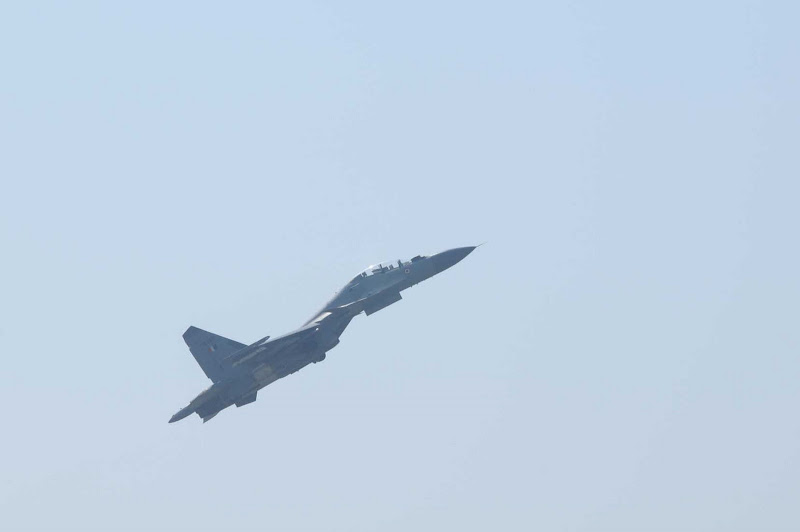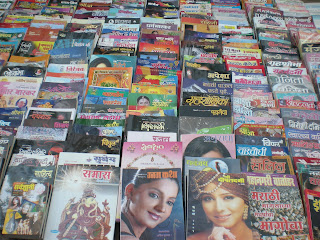

 With Diwali over, every politician, journalist and gossip mongers were behind the results of the assembly elections. While all major surveys and exit polls had gone in favour of the ruling Congress and Nationalist Congress Party alliance, they are still seen with a suspect given the impeccable track record of such surveys in the past. Opinion and exit polls are considered fickle next only to the forecasts by meteorology department in India. With large numbers of rebels, new enfant terrible like Maharashtra Navnirman Sena, Jan Surajya Party and Republican Left Democratic Front, the fight was sure to be most difficult of all times. but even than that, this election will go down in the history of Maharashtra as one bringing an epoch to close.
With Diwali over, every politician, journalist and gossip mongers were behind the results of the assembly elections. While all major surveys and exit polls had gone in favour of the ruling Congress and Nationalist Congress Party alliance, they are still seen with a suspect given the impeccable track record of such surveys in the past. Opinion and exit polls are considered fickle next only to the forecasts by meteorology department in India. With large numbers of rebels, new enfant terrible like Maharashtra Navnirman Sena, Jan Surajya Party and Republican Left Democratic Front, the fight was sure to be most difficult of all times. but even than that, this election will go down in the history of Maharashtra as one bringing an epoch to close.
That epoch of course being the political rivalry and influence of two personalities who have influenced the politics of state for over three to four decades. Yes, you guessed it right. After the result, Bal Thackerey, the Shiv Sena chief and Sharad Pawar, the NCP chief will not hold the sway like before in this election. Thackerey, who founded Shiv Sena in 1966 and headed single handedly since then is now an old tiger. He is credited with bringing the first non-Congress government in state which worked its full term. That this government was formed in alliance with Bharatiya Janata Party does not make any dent in his contribution. On the contrary, he was the only acceptable mascot of the alliance in state.
Bal Thackerey was the chief pioneer of Marathi son of soil agitations. An entire party was built on this issue but he had to relegate the issue to give it a broader ambit, that of Hindutva. But such was his clout that not a finger was raised towards him for navigating to other waters. He had built a dedicated supporter base and those supporters were ready to follow him wherever he lead. No questions asked, no questions permitted either. For years on years, media watched him addressing rallies at Shivaji Park in Mumbai . People thronged in hordes, growing in numbers each year. Media used all sorts of words to downplay his cult following, ranging from rhetoric to venom. But he grew in clout. He grew manifolds. Soon, Shiv Sena was seen ruling in the Mumbai Municipal Corporation , next only perhaps to legislature assembly in terms of political and administrative importance. The power in the MMC also gave access to immense resources to the party. Within 25 years from the formation of the party, Shiv Sena was seriously challenging the hegemony of Congress rule. In 1990 assembly elections, the SS-BJP alliance missed political power by whiskers. Within a year, it got its biggest shock till then.
Chhagan Bhujbal left Shiv Sena in December 1991 since he was miffed after being ignored for the post of leader of opposition in state assembly. His expectation was justified as he was party’s lone knight in the assembly since 1985. Still, Thackerey, who was now called Balasaheb with an appreciative accent by even his detractors, did not mend his fences. He still kept his hold on the party, dictated his terms and reigned over Mumbai. With some favorable developments and vigorous campaigning, he managed to what he called, “Furl the saffron flag on assembly.” Even though SS-BJP combine suffered losses in later years, in terms of seats and human capital also, that Bal Thackerey is a catchword in the Maharashtra’s political scene is a foregone conclusion. From trade unions to Bollywood, from students to the average middle class person, from women to activists, there is no as mesmerizing thing as a call from the octogenarian leader.
On his part, Thackerey has seldom missed a chance to show that he is a truckload of fire in his belly. For a party constantly harping on Chhatrapati Shivaji’s name for its livelihood, it is nothing less than a blasphemy to denounce the project of Shivaji memorial which is coming up in Arabian sea off Mumbai coast. It was not without nothing that the party telecasted a long interview of the Old Tiger recently on all major Marathi channels. It is a last ditch effort to encash its most successful brand in an era when the party is desperately missing the aggressive frontmen. This interview also proved that for Marathi audience, there is nothing as entertaining, as enthralling a presentation as a direct speech oratory of Thackerey.
Now with Shiv Sena losing the election, then it is over for Thackerey who pledged last time that he will not remove the beard unless the party is voted back in power. With his frail health and lost hopes, he is not expected to guide the party in next elections, let alone lead it. His struggles against the Congress will be recorded as a crusader who showed that David can fight the Goliath while becoming Goliath himself. We should see his latest outbursts against his nephew Raj for betraying the Marathi cause. At this age after so many decades, it is always hard to digest the bitter truth.


 Puneites are gearing up to stop flights by relatives of the ministers. After the decision to allow even relatives of the ministers to allow free travel in aeroplanes, an organisation in the city is planning an agitation against the decision.
Puneites are gearing up to stop flights by relatives of the ministers. After the decision to allow even relatives of the ministers to allow free travel in aeroplanes, an organisation in the city is planning an agitation against the decision. 
 Think of it. 66 studio centers spread all over the country, out of these 23 centres are either already digitalised or being digitalized, 39 studio centers, 91 percent area covered all over India. Still Doordarshan is often called poordarshan because of its style of functionning. It seems it likes to work as just another government organ.
Think of it. 66 studio centers spread all over the country, out of these 23 centres are either already digitalised or being digitalized, 39 studio centers, 91 percent area covered all over India. Still Doordarshan is often called poordarshan because of its style of functionning. It seems it likes to work as just another government organ. 
 Before the advent of each session of legislature, it is a kind of ritual now to carry the stories on possible issues testing government. Accordingly, this time the media is saying that Congress-Nationalist Congress Party alliance government is said to be pushed to corner over some issues. These are `leakage' of the Pradhan Committee report on 26/11 terror attacks and farmer suicides. The question is : will it really?
Before the advent of each session of legislature, it is a kind of ritual now to carry the stories on possible issues testing government. Accordingly, this time the media is saying that Congress-Nationalist Congress Party alliance government is said to be pushed to corner over some issues. These are `leakage' of the Pradhan Committee report on 26/11 terror attacks and farmer suicides. The question is : will it really?

 h the construction is mainly recognised by its imposing gates in the front, there are four other gates in the structure also. One is known as Narayan Darwaja, since it was from here that the dead body of Narayanrao Peshwa was taken out for crematio after he was murdered. The main gate is known as Dilli Darwaja because it is faced towards north, in the direction of Delhi. It was a sign of the ambitions of Peshwa to spread their kingdom. According to one legend, Bajirao chose the place for constructing his palace after he saw one rabbit chasing a hound. •
h the construction is mainly recognised by its imposing gates in the front, there are four other gates in the structure also. One is known as Narayan Darwaja, since it was from here that the dead body of Narayanrao Peshwa was taken out for crematio after he was murdered. The main gate is known as Dilli Darwaja because it is faced towards north, in the direction of Delhi. It was a sign of the ambitions of Peshwa to spread their kingdom. According to one legend, Bajirao chose the place for constructing his palace after he saw one rabbit chasing a hound. • 
 , who was in Mumbai yesterday to flag off new train services, announced that the Candidates can now give their exams in their regional language mentioned in Schedule I of the Constitution including Marathi. Banerjee, also said the exams will now be held in a single day and also announced concessions in terms of postal orders for the Scheduled Castes, Scheduled Tribes and economically backward class (EBC) candidates appearing for the recruitment examinations.
, who was in Mumbai yesterday to flag off new train services, announced that the Candidates can now give their exams in their regional language mentioned in Schedule I of the Constitution including Marathi. Banerjee, also said the exams will now be held in a single day and also announced concessions in terms of postal orders for the Scheduled Castes, Scheduled Tribes and economically backward class (EBC) candidates appearing for the recruitment examinations. 

 While political analysts and media is engaged in bashing Maharashtra Navnirman Sena over the incident yesterday in assembly house, there is equally strong reactions from the public in favour of the party. Marathi blogs are replete with the praise for the MLAs who staked their position in the incident. Surprisingly, Ramesh Wanjale, MLA from Khadakwasla constituency was also involved in the manhandling of Abu Azmi. Surprisingly, because he was not a genuine MNS member, but has recently switched over to the party from Congress.
While political analysts and media is engaged in bashing Maharashtra Navnirman Sena over the incident yesterday in assembly house, there is equally strong reactions from the public in favour of the party. Marathi blogs are replete with the praise for the MLAs who staked their position in the incident. Surprisingly, Ramesh Wanjale, MLA from Khadakwasla constituency was also involved in the manhandling of Abu Azmi. Surprisingly, because he was not a genuine MNS member, but has recently switched over to the party from Congress.  After 15 days of lingering incertainty, there is a government finally an the state. The 38 members strong council of ministers tookl oath of the secrecy today. The Congress has 18 ministers and NCP 20. NCP ministers are expected to take oath on at once and Congress ministers would be sworn in two phases.
After 15 days of lingering incertainty, there is a government finally an the state. The 38 members strong council of ministers tookl oath of the secrecy today. The Congress has 18 ministers and NCP 20. NCP ministers are expected to take oath on at once and Congress ministers would be sworn in two phases.
















